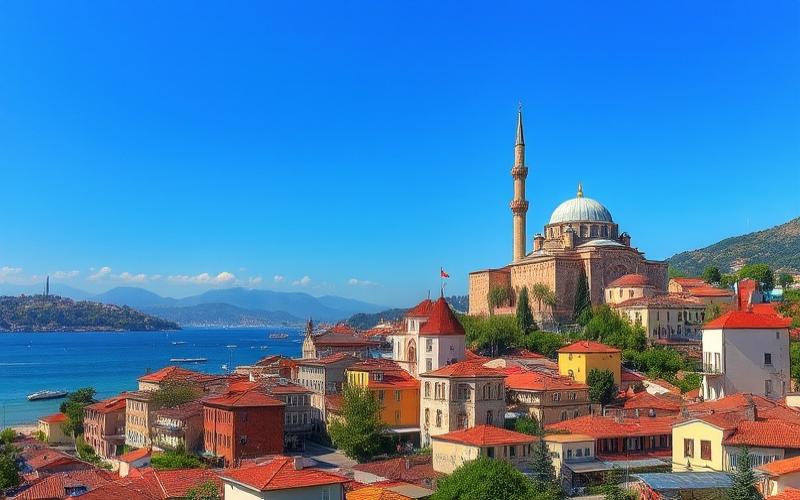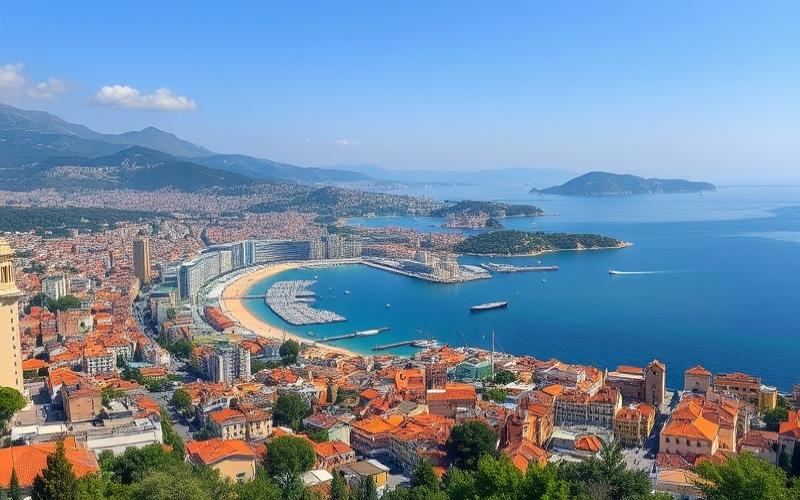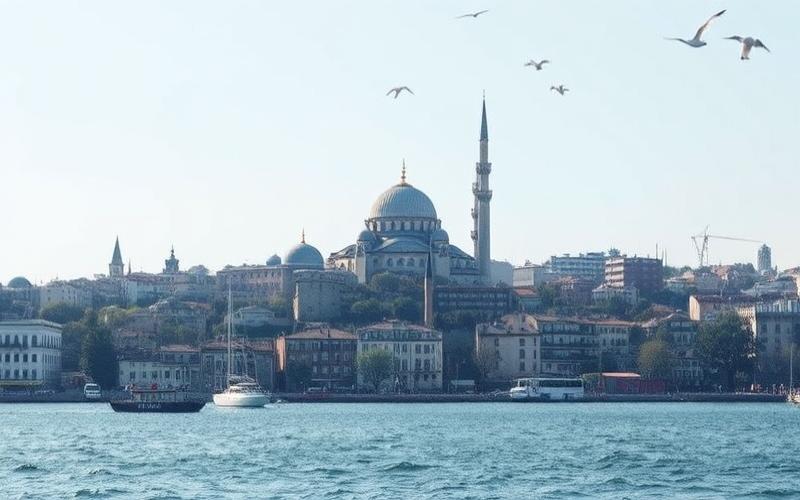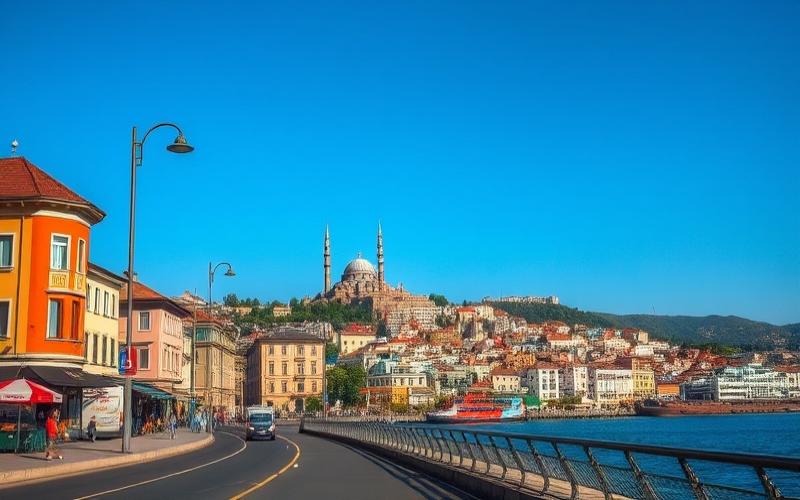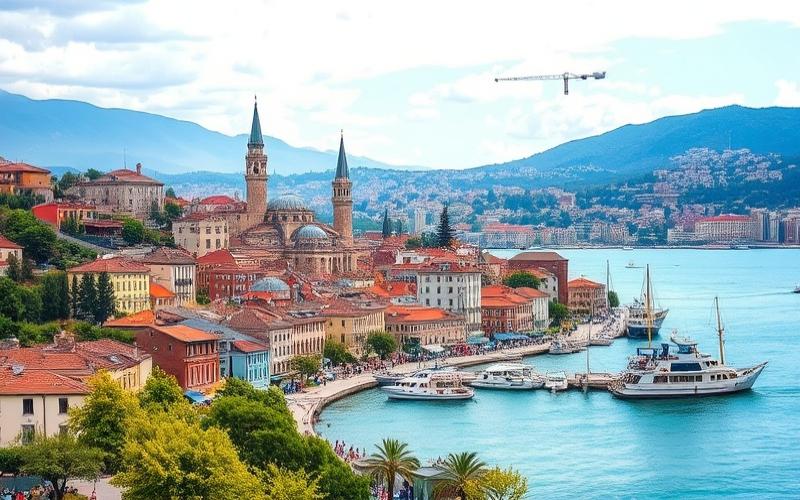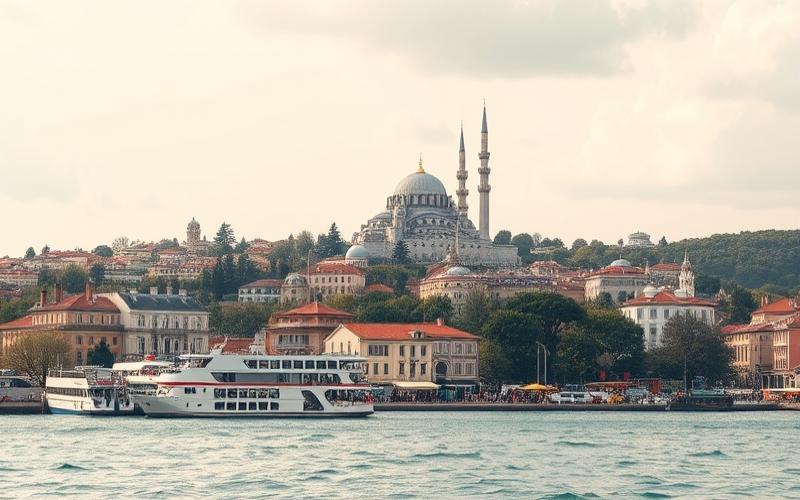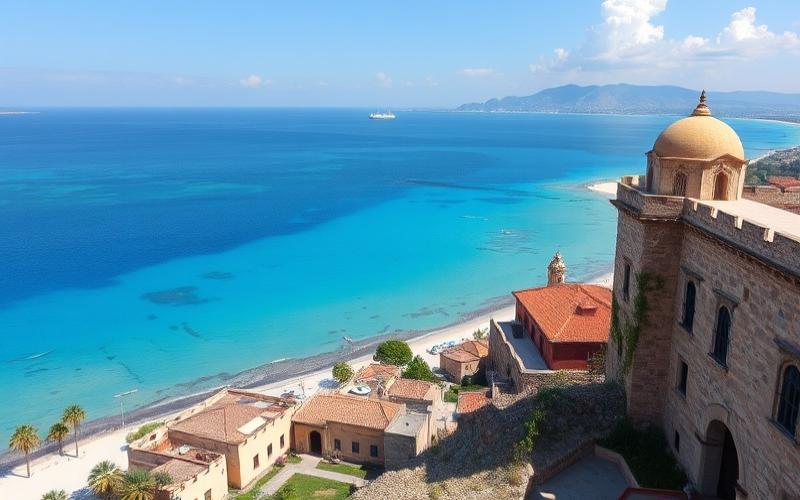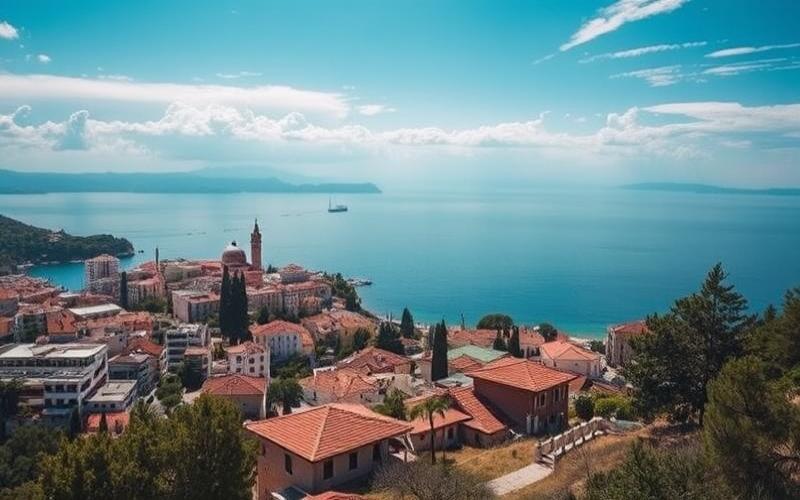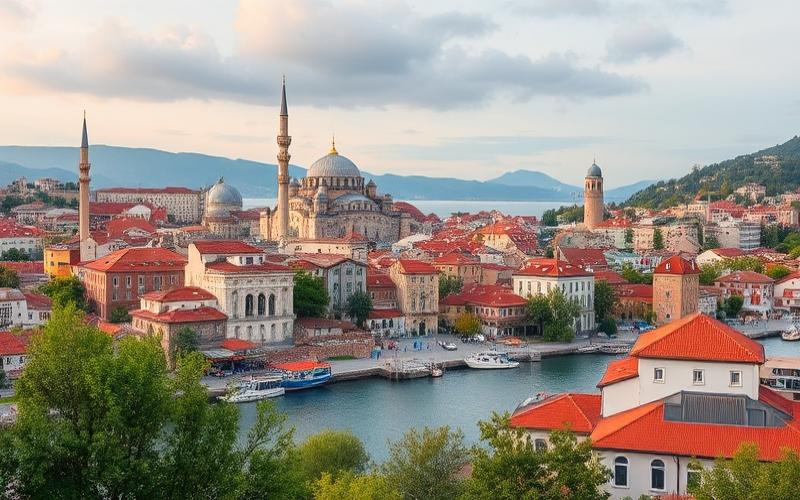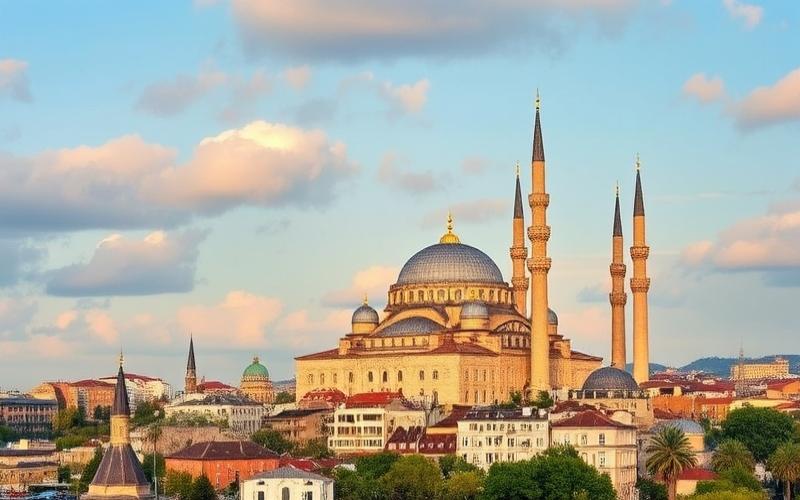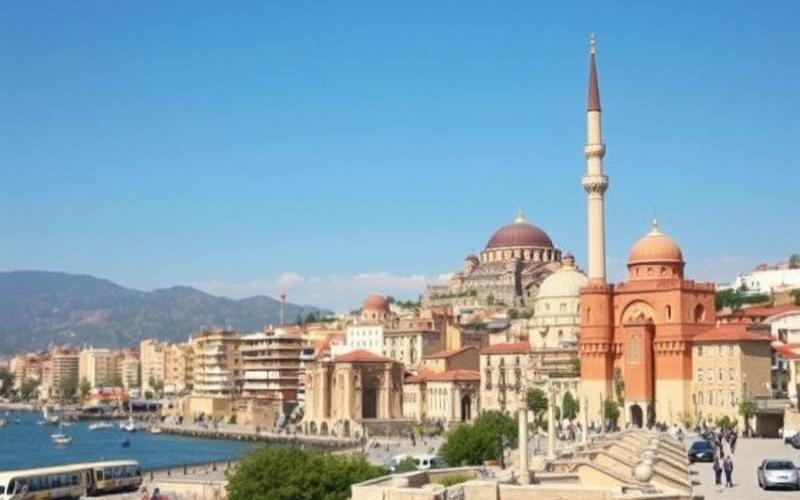
 Published on and written by Cyril Jarnias
Published on and written by Cyril Jarnias
Finding housing in Turkey can be a challenge filled with complexities due to the diversity of offerings and local cultural specifics. Despite a constantly evolving real estate market, it’s essential to arm yourself with the right tools to navigate among the varied options available to expatriates.
Whether you’re looking to settle in the hustle and bustle of Istanbul or the serene landscapes of Cappadocia, this article will guide you through the best practices to avoid common pitfalls, providing you with wise advice and effective tips to optimize your search.
Equipped with this information, you’ll be well-prepared to make an informed choice and fully enjoy your new life in Turkey.
Finding the Hidden Gem: Tips for Uncovering the Ideal Housing in Turkey
Effective Search Methods
- Specialized websites :
- Sahibinden (the Turkish “Craigslist,” very comprehensive for all types of budgets and neighborhoods)
- Hurriyet Emlak (ideal for long-term real estate in Istanbul)
- Remoters (connecting with French agents in Istanbul)
- Mobile applications :
- Many sites offer their own apps, facilitating real-time search and filtering.
- Local real estate agencies (emlak) :
- Neighborhood agencies are often well-informed about the local market. Expect agency fees equivalent to one month’s rent. Being accompanied by a Turkish speaker is advised to avoid misunderstandings.
Key Criteria to Consider
| Criterion | Importance and Tips |
|---|---|
| Location | Proximity to work, university, or downtown; safety; atmosphere |
| Budget | Rent + utilities, security deposit (1 to 2 months’ rent) |
| Public Transportation | Easy access to metro, bus, tramway |
| Amenities | Supermarkets, hospitals, schools, banks nearby |
| Community | Presence of expatriates, social life, neighborhood vibe |
Tips for Verifying Ad and Landlord Reliability
- Always visit the property before any financial advance.
- Be wary of requests for upfront payment: a frequent scam in Istanbul.
- Demand a written contract, verify the landlord’s identity.
- Read reviews or ask for recommendations from expatriates or social media groups.
- Use reputable platforms, avoid ads that are too attractive or lack detail.
Tips for On-Site Visits
- Check the general condition of the property (plumbing, electricity, insulation).
- Inspect the immediate environment (noise, safety, services).
- Take photos during the visit to avoid disputes.
- Ask to meet neighbors to better understand the building/neighborhood atmosphere.
Understanding Rental Contracts and Local Legislation
- Read terms carefully: lease duration, deposit amount, termination conditions, maintenance, subletting.
- Seek help from a native speaker or advisor if you don’t master Turkish.
- Familiarize yourself with tenant and landlord rights and duties.
- Be aware of local laws and customs: some rules differ from Western practices (e.g., obligation to register the contract with the municipality).
Concrete Examples and Expatriate Testimonials
“I found my apartment in Istanbul via Sahibinden. I filtered according to my budget and proximity to the metro. After several visits, I chose a place in a lively neighborhood close to my work. The landlord asked for two months’ deposit, but everything was clear in the contract. I recommend always visiting before signing anything.”
— Lucas, French expatriate
“Going through a local agency reassured me: they knew the neighborhood well and helped me negotiate the rent price. I also had the contract reviewed by a Turkish friend, which avoided any bad surprises.”
— Maria, Spanish expatriate
Summary of Best Practices
- Use specialized websites and reputable applications.
- Prioritize location according to your daily needs.
- Always visit, avoid advances without guarantees.
- Read and have the contract reviewed by a competent third party.
- Exchange with other expatriates to get reliable feedback.
The success of your search relies on combining modern tools, vigilance during transactions, and a good understanding of the local context.
Good to Know:
When searching for the ideal housing in Turkey, start by exploring specialized websites like sahibinden.com or emlakjet.com, and use mobile applications such as Zingat, which offer a variety of updated listings. Collaborating with local real estate agencies can also prove valuable for accessing exclusive offers while considering essential criteria like location, budget, and proximity to public transportation. Be vigilant and verify ad reliability by checking landlord reviews and actively comparing prices across multiple platforms. During visits, prefer being accompanied by a Turkish speaker to avoid misunderstandings; ensure you read rental contracts carefully, informing yourself about local laws governing rentals, such as the importance of the security deposit. For informed choices, draw inspiration from expatriate testimonials, which emphasize the importance of integrating local customs into the decision-making process; for example, an expatriate in Istanbul strongly recommends opting for neighborhoods away from the center if you’re looking for a quieter and more cost-effective environment.
Preparing Your Budget: How Much to Plan for Housing in Turkey
Properly preparing your housing budget in Turkey is essential to ensure a successful setup and avoid financial surprises. The Turkish market shows significant disparities depending on the city, type of housing, and chosen neighborhood.
Types of Available Housing:
- Apartments: The dominant choice in large cities; offered from studios to 4-bedrooms, often in new or old buildings.
- Single-family homes: Rarer in city centers, more present in suburbs or residential areas.
- Shared housing: An economical solution very popular with students and young professionals, allowing sharing of rent and utilities.
| City | 1-Bedroom Apartment (monthly rent) | 3-Bedroom Apartment (monthly rent) | Purchase Price/m² |
|---|---|---|---|
| Istanbul | $900 | $1,700 | $1,520 |
| Ankara | $650 | $1,000 | $815 |
| Izmir | $580 | $930 | $1,112 |
Factors Influencing Housing Prices
- Location: Central neighborhoods or those near universities/business centers are more expensive; the outskirts offer more affordable rates.
- Property size: The larger the surface area (number of rooms), the more rent/purchase price increases significantly.
- Equipment & standard: Furnished housing or with modern amenities = higher cost. Secure residences with pool/gym also show a surcharge.
Cost of Living by Region
The overall cost heavily depends on the city:
- Istanbul remains the most expensive metropolis at all levels (housing as well as transport/dining).
- Ankara offers an interesting compromise between urban dynamism and affordable rents.
- Izmir attracts with its Mediterranean mildness and moderate prices despite recent increases.
Some average monthly expenses:
| Expense | Istanbul | Ankara | Izmir |
|---|---|---|---|
| Utilities & charges | $85 | $88 | $85 |
| Transportation | $44 | $8 | $20 |
| Simple restaurant meal | ~$11 | ~$10 | ~$8 |
Additional Fees to Anticipate
- Rental charges (water, electricity, gas)
- Local residence taxes
- Real estate agency fees (often equivalent to one month’s rent)
Additional fees may apply during setup: security deposit usually requested by the landlord (one to two months), paid activation of water/gas/electricity accounts depending on the local provider.
Practical Tips to Optimize Your Budget
- Systematically compare listings on multiple Turkish real estate platforms.
- Prefer shared housing if your priority is saving without sacrificing location.
- Negotiate directly with landlords when possible to avoid some agency fees.
- Get informed via forums/testimonials from expatriates sharing their recent experiences on real daily costs.
- Use online budget simulators incorporating average rents by neighborhood.
For any real estate project in Turkey: plan an additional margin in your initial budget to absorb high local inflation and potential unexpected fees.
Good to Know:
Preparing your budget for housing in Turkey is essential to avoid financial surprises, especially in large cities like Istanbul, Ankara, and Izmir, where prices can vary significantly. In Istanbul, a one-bedroom apartment in the city center can cost between 400 and 600 euros per month, while in Ankara and Izmir, prices are generally lower, around 300 to 500 euros. Shared housing and properties in the outskirts are more economical options. Location, size, and housing equipment strongly influence these rates. Beyond rent, don’t overlook common charges, local taxes, and agency fees, which can increase the budget. The cost of living also varies by region and should be considered to estimate the necessary budget according to the desired lifestyle. To optimize your budget, using online tools to compare prices is recommended, as is consulting expatriate testimonials that offer valuable insights.
Neighborhoods Favored by Expatriates: Experiencing Turkey Differently
Istanbul and Ankara have several neighborhoods favored by expatriates for their atmosphere, cultural diversity, and amenities.
| City | Neighborhood | Atmosphere & Culture | Architecture & Housing | Amenities |
|---|---|---|---|---|
| Istanbul | Kadıköy | Young, trendy, lively nightlife, strong expat presence; many alternative cafes and local markets. | Mix of modern renovated apartments in old buildings; some traditional houses. | Nearby international schools (Uskudar American Academy), international/vegetarian restaurants, cultural spaces like Süreyya Opera House. Transportation: ferries to Europe, fast Marmaray metro to downtown; close to tech employment zones. |
| Beşiktaş | Dynamic and cosmopolitan; student life (university), lively bars and Bosphorus shores popular for social outings among young professional expats or international families. | Contemporary apartments with Bosphorus views or more classic housing in quiet side streets. | Modern sports centers, nearby private/international schools (MEF International School), English-speaking social clubs; easy access to bus/metro/tramway to quickly reach economic centers like Levent or Maslak. | |
| Nişantaşı | Upscale chic neighborhood with marked European style; luxury shops/art galleries/gourmet bistros frequented by foreign executives and European diplomats. | Restored Belle Époque buildings with spacious high-end apartments often featuring terraces/interior gardens. | Numerous refined international restaurants (French/Italian/Japanese); reputable bilingual private schools; proximity to high-end private hospitals; direct metro stations to central neighborhoods/main offices. |
Experience Feedback
A French expatriate settled in Kadıköy describes the atmosphere as “a mix between Montmartre and Brooklyn,” highlighting the local friendliness that facilitates integration thanks to weekly artistic events.
A German engineer living in Beşiktaş appreciates the ease of daily commutes via ferry or tramway as well as “the neighborhood’s culinary richness” where he easily finds international offerings.
Ankara
Although less vast than Istanbul, it also attracts a growing foreign community around:
- Çankaya: Diplomatic heart hosting main embassies, international universities (METU – Middle East Technical University). Peaceful yet cosmopolitan atmosphere due to the continuous presence of foreign students/diplomats.
- Housing: Recent secure residences with modern style but also restored traditional Ottoman villas around Atatürk Park.
- Local amenities: Several recognized French/English-speaking international schools; accessible national museums on foot; varied cultural centers offering multilingual conferences/shows year-round.
- Practical aspects: Efficient public transport with dedicated bus lines from Çankaya to administrative headquarters/local NGOs — many cite the speed of home-work commutes as a major advantage.
A British NGO manager mentions “a very strong community feeling among expatriate families,” reinforced by Sunday brunches organized around Kuğulu Park where bilingual Turkish-English speaking children gather.
Common Attractive Points
- Strong sense of security felt in all these neighborhoods
- Privileged access to high-level medical services
- Rich offering in sports/cultural activities suited for families
- Overall affordable cost compared to major European cities
Practical Summary
The preferred neighborhoods offer:
- Immediate proximity to fast transport/efficient road network
- Wide choice between ultra-modern apartments or traditional homes according to tastes/budget
- Dynamic international social life facilitating rapid integration
Living in these neighborhoods thus allows fully benefiting from Turkish dynamism while maintaining international benchmarks – a balance unanimously appreciated by the expatriate community!
Good to Know:
In Istanbul, the Nişantaşı neighborhood stands out for its unique blend of European elegance and Turkish culture, offering modern apartments and chic boutiques, while Cihangir attracts an artistic community with its historic houses and lively cafes. Expatriates appreciate the friendly atmosphere and varied restaurants. In Ankara, Kavaklıdere is favored for its contemporary housing and proximity to embassies, while Çankaya appeals with its villas and international schools. Efficient public transportation and numerous amenities like cultural centers facilitate daily life, making these neighborhoods particularly attractive for those seeking to experience Turkey differently, with resident anecdotes highlighting the richness of intercultural exchanges and the friendliness of local services.
Disclaimer: The information provided on this website is for informational purposes only and does not constitute financial, legal, or professional advice. We encourage you to consult qualified experts before making any investment, real estate, or expatriation decisions. Although we strive to maintain up-to-date and accurate information, we do not guarantee the completeness, accuracy, or timeliness of the proposed content. As investment and expatriation involve risks, we disclaim any liability for potential losses or damages arising from the use of this site. Your use of this site confirms your acceptance of these terms and your understanding of the associated risks.


